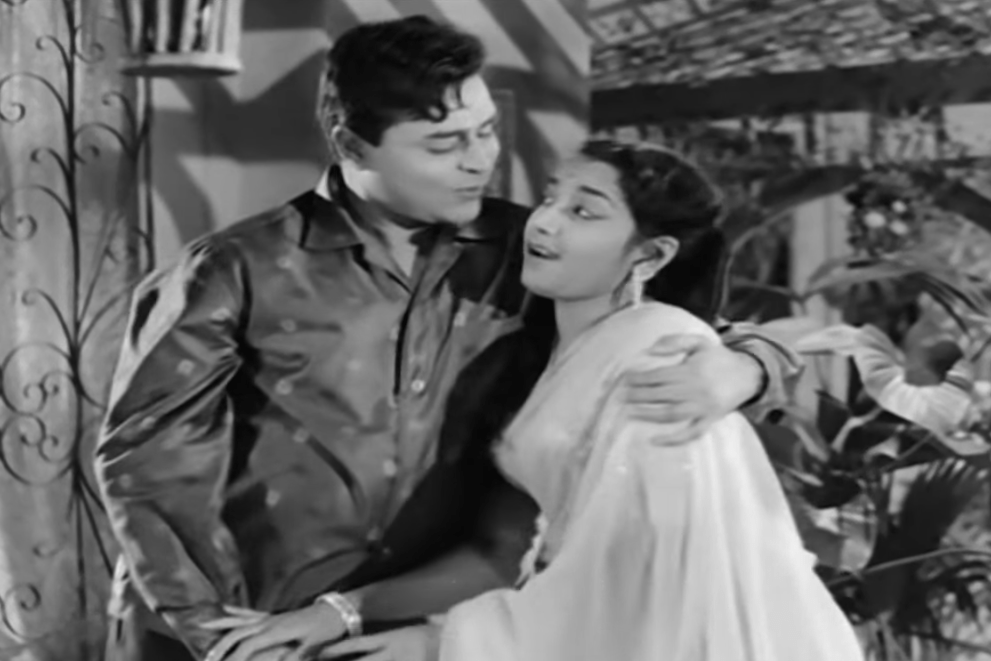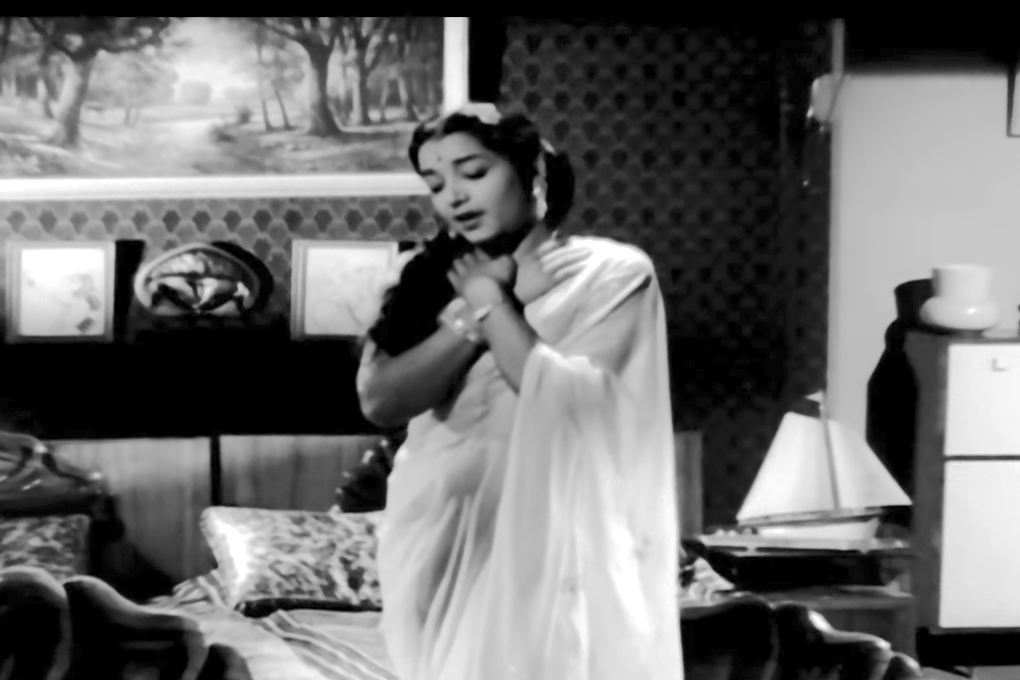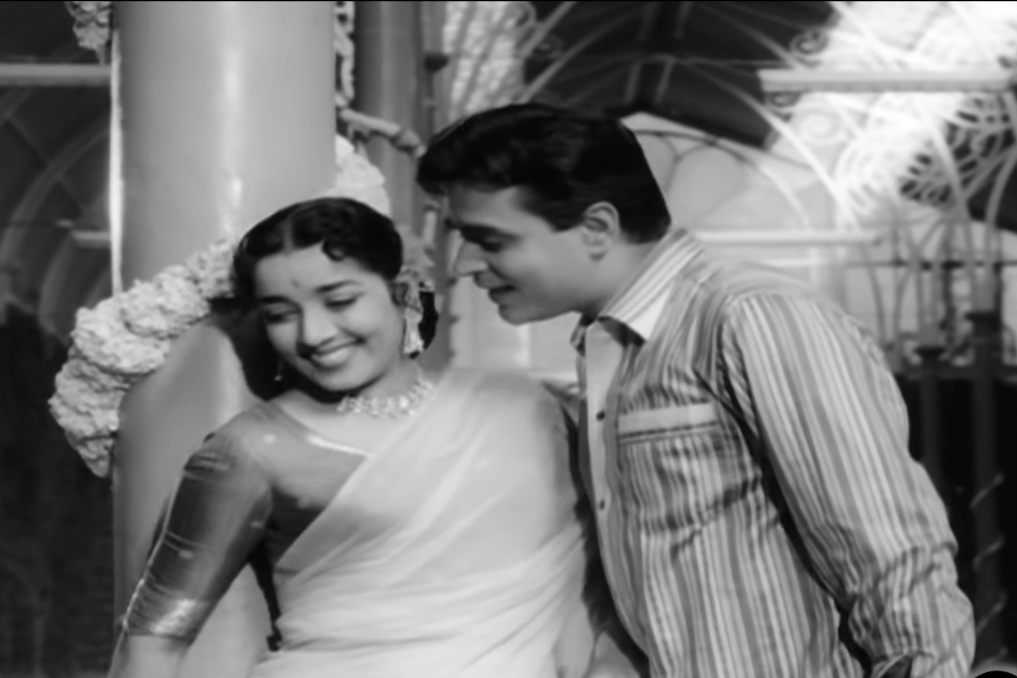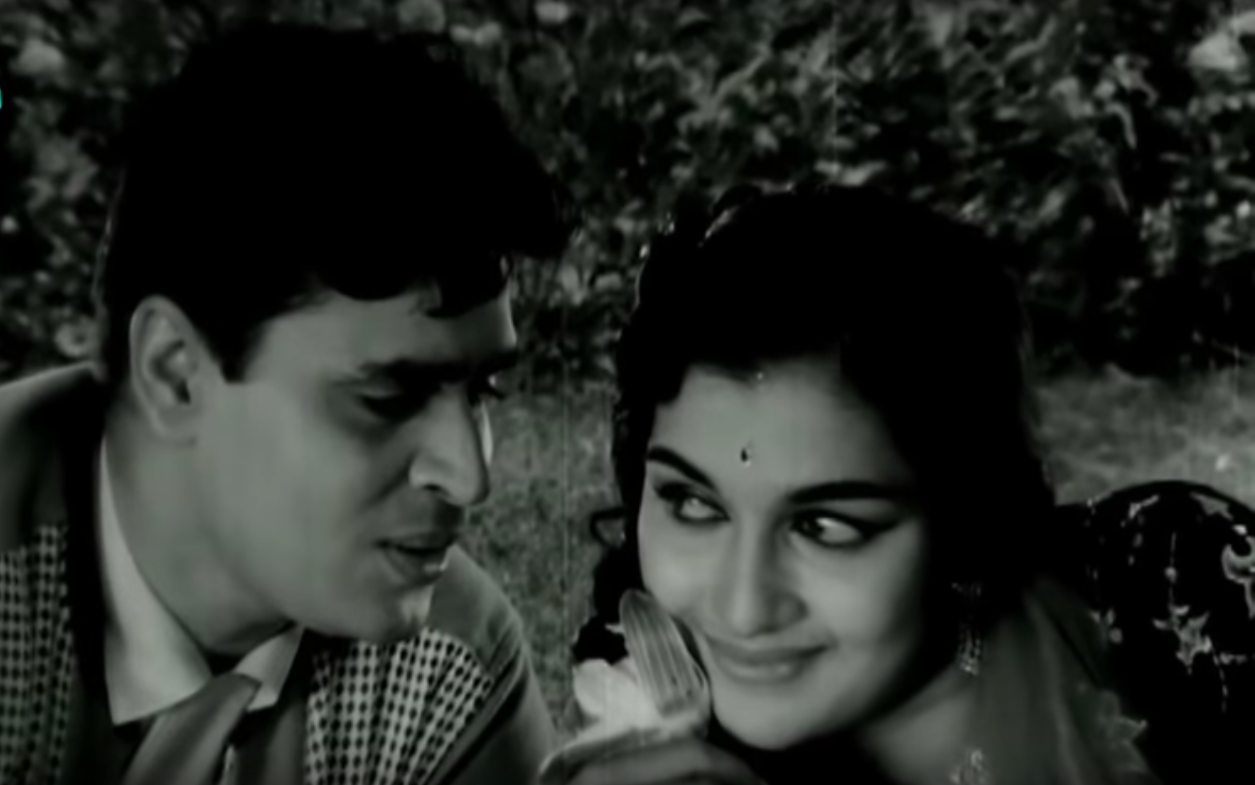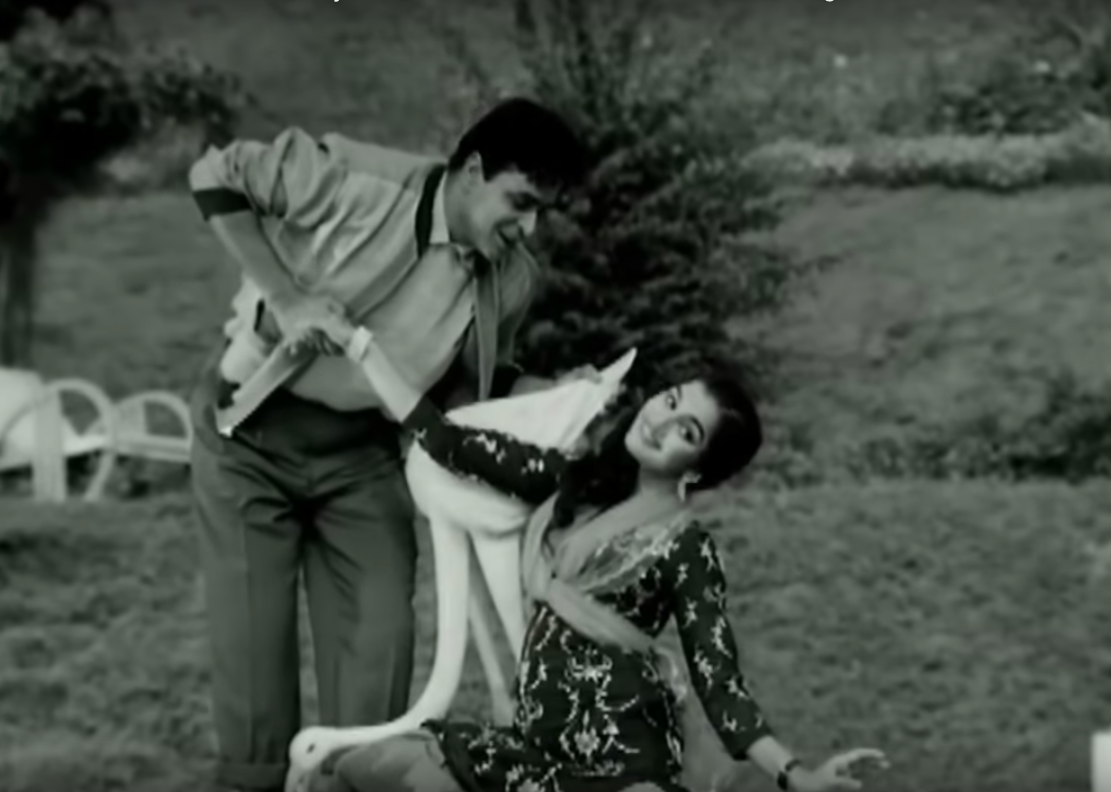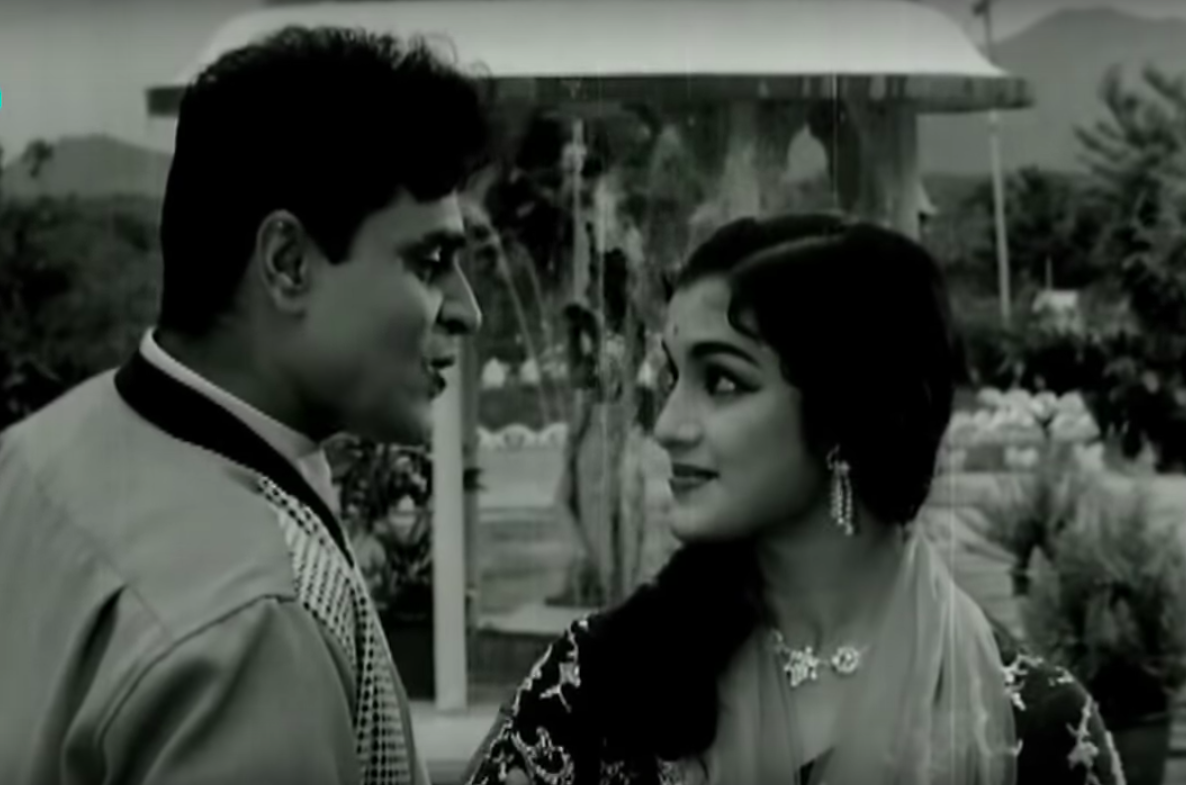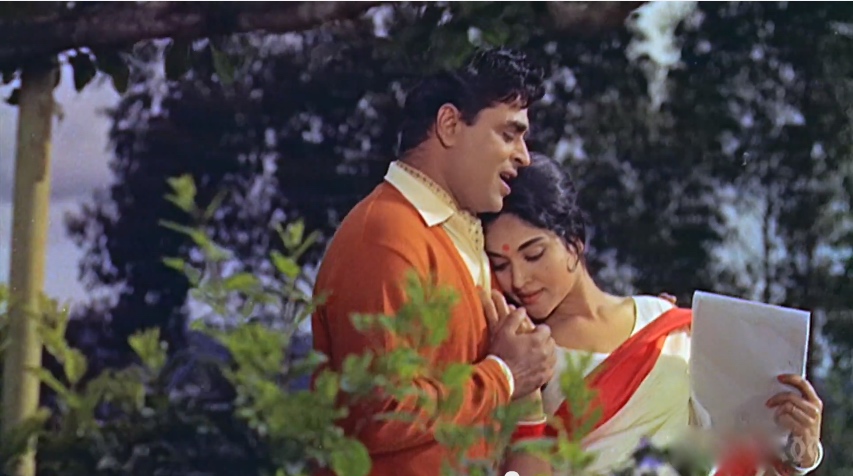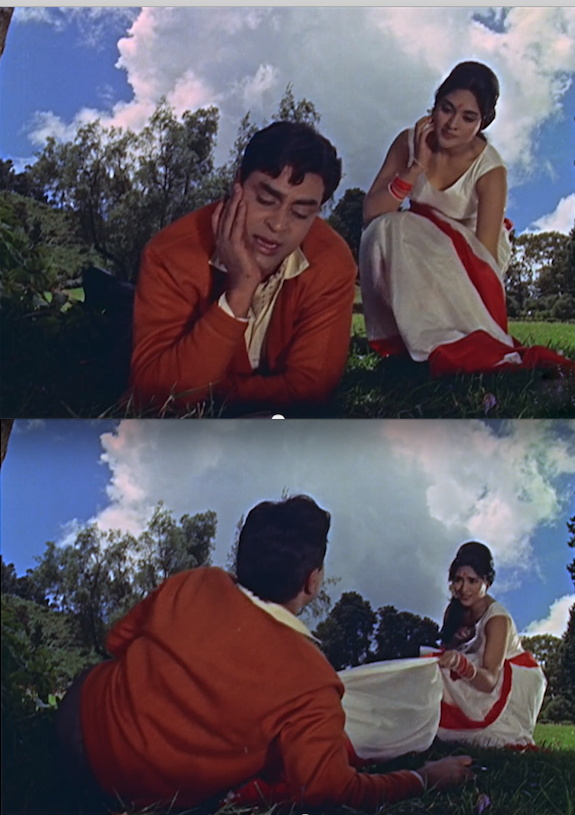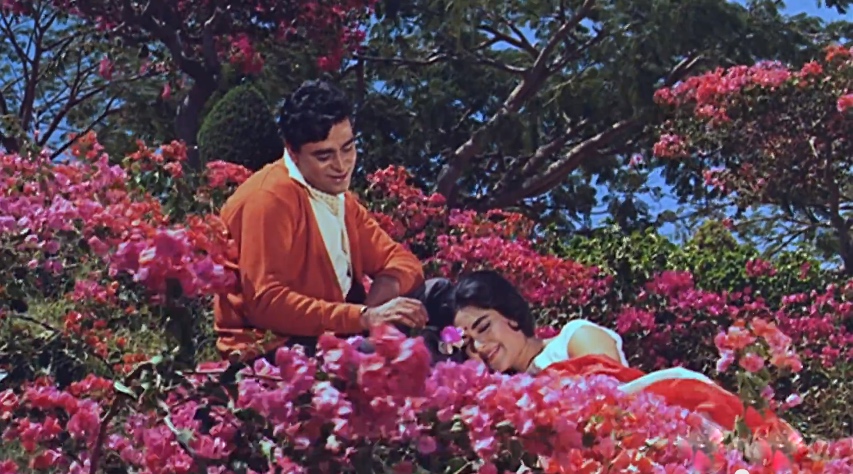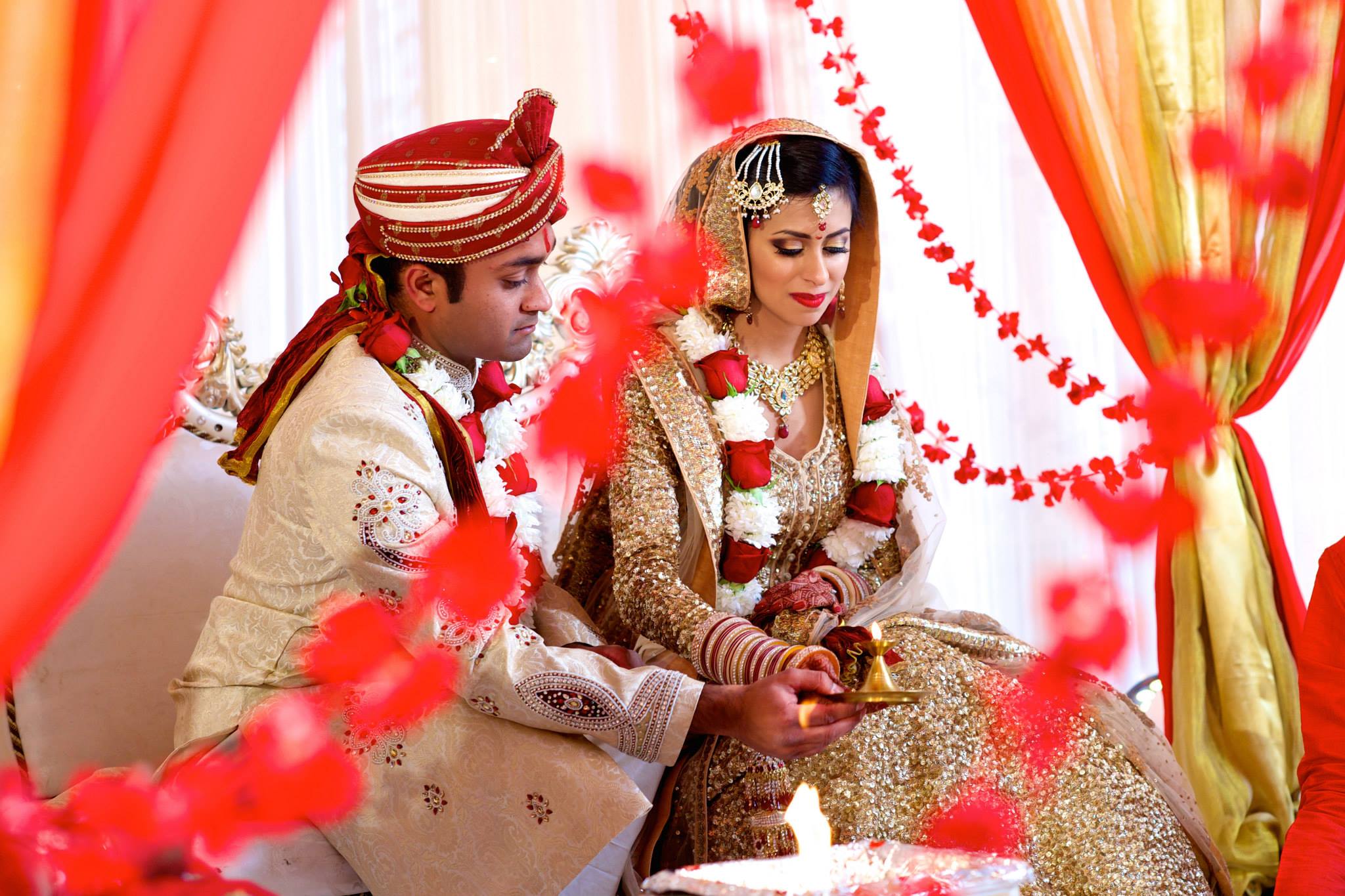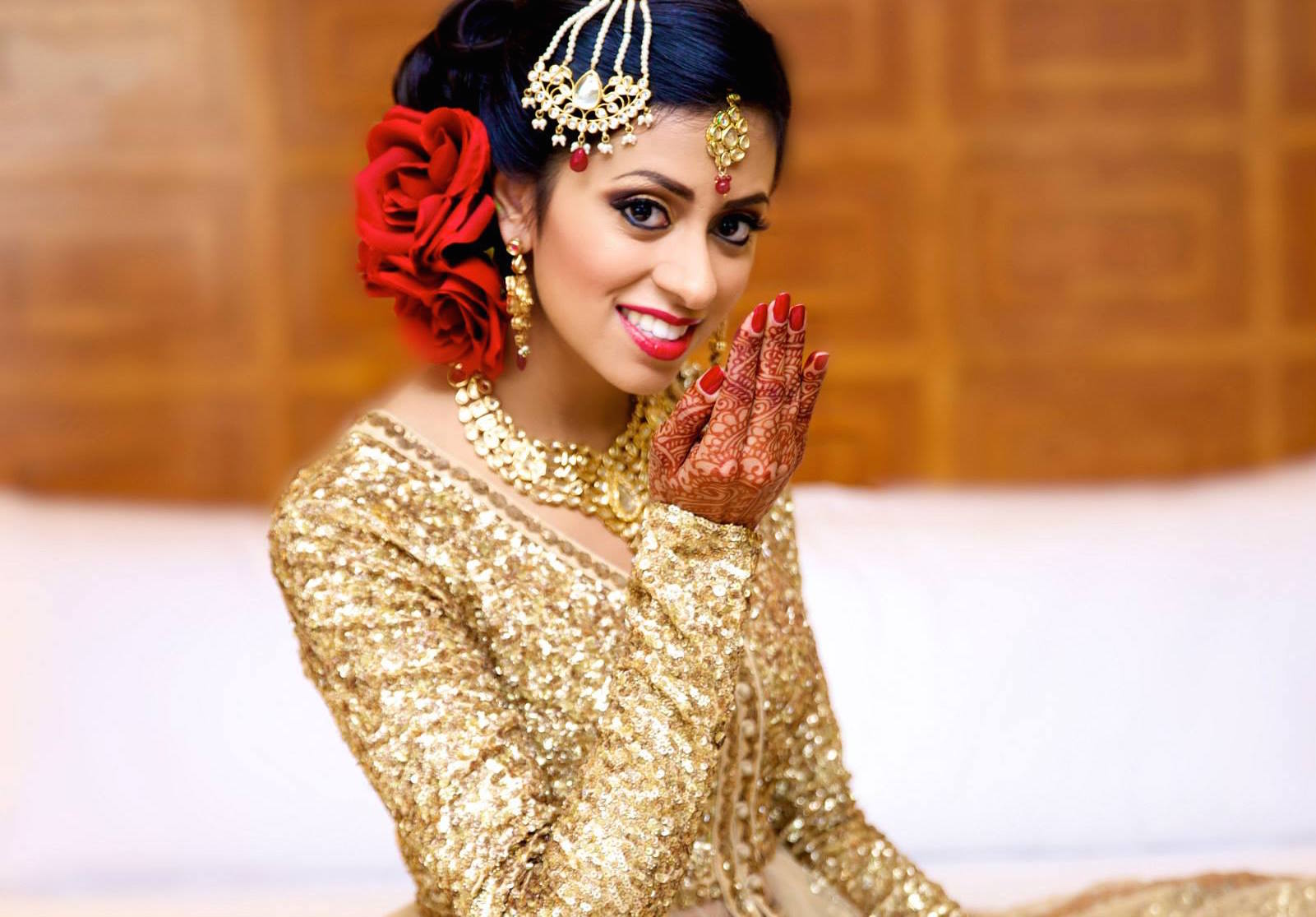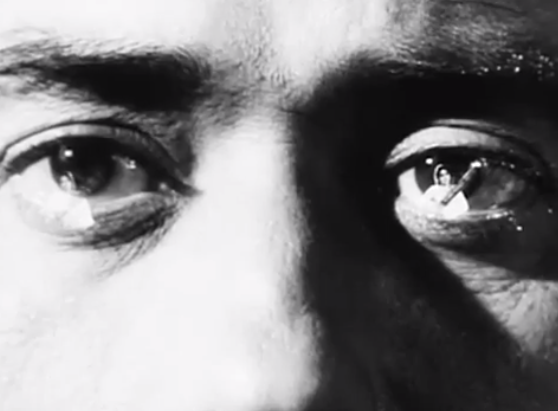
Today we showcase the lyrics and English translation of “Teri Pyari Pyari Surat Ko,” one of Mohammed Rafi’s most romantic hits in honor of Valentine’s Day. Oozing with a dated flirtatious paternalism, Hasrat Jaipuri’s lyrics remind us of the incomparable beauty of the Urdu language. Who else but the great Mohammed Rafi (with that dreamy satin waterfall of a voice) could utter phrases like “chashme badduur” or “zarro.N ki nazar na lage” and induce seizures on the spot? He was awarded the Filmfare Award for Best Playback singer for “Teri Pyari Pyari Surat Ko” in 1961, having remarkably also won the year prior for “Chaudhvin Ka Chand!” Until 1967, male and female singers competed for the same singing award, so keep in mind that he crushed the Mangeshkar sisters twice in a row.
Now you are doubtless wondering, what the heck does “chashme badduur” mean? In Urdu-Hindi vernacular, the word “chashme” is often used for “eyeglasses,” so it seems awkward to start discussing your myopia just as you’re about to praise your crush’s beauty. Derived from Farsi, the phrase “chashme badduur” means literally “keep the evil eye far away.” We more commonly use the term “nazar” in Urdu-Hindi to mean “evil eye,” an omen of someone wishing ill upon you often from jealousy (of your beauty, wealth, achievements, etc). This is complicated by the fact that the term “nazar” in the right context bears no such connotations and could just mean “glance,” frequently employed in Bollywood love songs with poetic abandon. Context clues are everything.
So move past any disbelief in the cultural trope of the “evil eye” (just try winning an argument with your grandparents on this one), and you can appreciate what a sweet compliment it is to say, “chashme badduur.” This simple, respectful phrase conveys a desire to protect as well as admire. I recognize that this line of reasoning can quickly become a slippery slope, but hey, a 1960s romance is what it is. And I bet you’re already feeling lightheaded.
Still not sure what song to sing to your boo on Valentine’s Day? I’ll let the “Teri Pyari Pyari Surat Ko” lyrics do the rest of the talking and I’m confident your confusion will dissipate. Don’t let the mediocre looks of Rajendra Kumar wear you down (he always manages to snag the best Rafi songs–“Yeh Mera Prem Patra“or “Husnwale Tera Jawab Nahin” to name but a few). While everyone loves to hate on Saroja Devi, I think she does everyone a favor by distracting from the bigger on-screen eyesore.
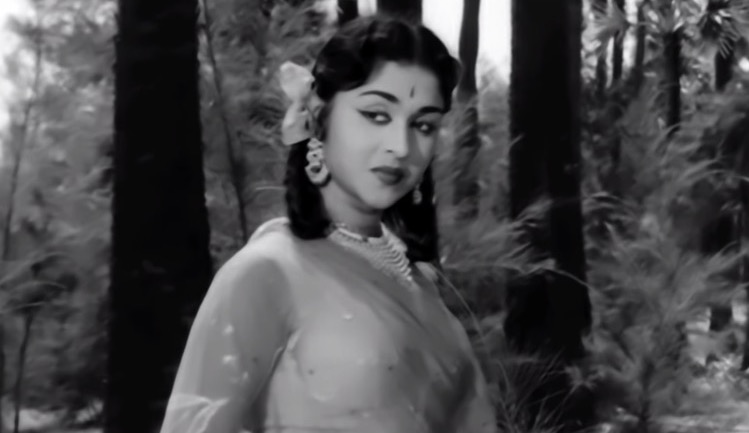
Teri Pyari Pyari Surat Ko Lyrics & Translation:
Terii pyaarii pyaarii suurat ko, kisii kii nazar na lage
Let no one cast an evil eye upon your lovely face
Chashm-e-badduur
Keep the evil eye far away
MukhaDe ko chhupaa lo aa.Nchal mei.N, kahii.N merii nazar na lage
Hide your face in the drape of your sari, lest I cast an evil eye upon you
Chashme baddur
Keep the evil eye far away
Yuu.N na akele phiraa karo, sab kii nazar se Daraa karo
Do not wander alone like this, be wary of everyone’s gaze
Phuul se zyaadaa naazuk ho tum, chaal sambhal kar chalaa karo
You are more delicate than a flower, be careful of how you walk
Zulfo.N ko giraa lo gaalo.N par, mausam kii nazar na lage
Let your hair fall upon your cheeks, lest the atmosphere cast an evil eye upon you
Chashme baddur
Keep the evil eye far away
Ek jhalak jo paata hai, raahii wahii ruk jaata hai
Upon gaining one look at you, a traveler halts right there in his tracks
Dekh ke teraa ruup salonaa, chaa.Nd bhii sar ko jhukaataa hai
Upon seeing your stunning beauty, even the moon bows its head
Dekhaa na karo tum aaiinaa, kahii.N khud kii nazar na lage
Do not keep looking into the mirror, lest you cast an evil eye upon yourself
Chashme baddur
Keep the evil eye far away
Dil mei.N chhupaa voh tiir ho tum, chaahat kii tasviir ho tum
You are the arrow hidden in my heart, you are the image of my desire
Kaun na hogaa tum se diiwaanaa? pyaar bharii tasviir ho tum
Who would not go mad for you? You are a picture filled with love
Nikalaa na karo tum raaho.N par zarro.N kii nazar na lage
Do not keep coming out upon this path, lest even a particle cast an evil eye upon you
Chashme baddur
Keep the evil eye far away
Terii pyaari pyaari suurat ko, kisii kii nazar na lage
Let no one cast an evil eye upon your lovely face
Chashme badduur
Keep the evil eye far away
Glossary:
pyaarii: beloved, lovely; suurat: face; nazar: evil eye; chashm-e-badduur: keep the evil eye afar; mukhaDaa: face; chhupaa lenaa: to hide; aa.Nchal: the fancy end of a saarii that drapes over the shoulder; phirnaa: to wander, to revolve; [kisii se] Darnaa: to be afraid [of something]; phuul: flower; [kisii se] zyaadaa: more [than something]; chaal: gait; sambhal karnaa: to be careful; chalnaa: to go; zulfe.N: hair; girnaa: to fall; gaal: cheek; mausam: season, atmosphere; jhalak: glimpse; raahii: traveler; ruk jaanaa: to halt; ruup: beauty; salonaa: gorgeous, stunning; chaa.Nd: moon; sar jhuknaa: to bow [one’s] head; aaiinaa: mirror; khud: self; dil: heart; tiir: arrow; chaahat: love, desire; tasviir: picture; diiwaanaa: mad; bharaa: filled; nikalnaa: to emerge; zarr: particle (see use in “O Mere Shah-e Khuban“)
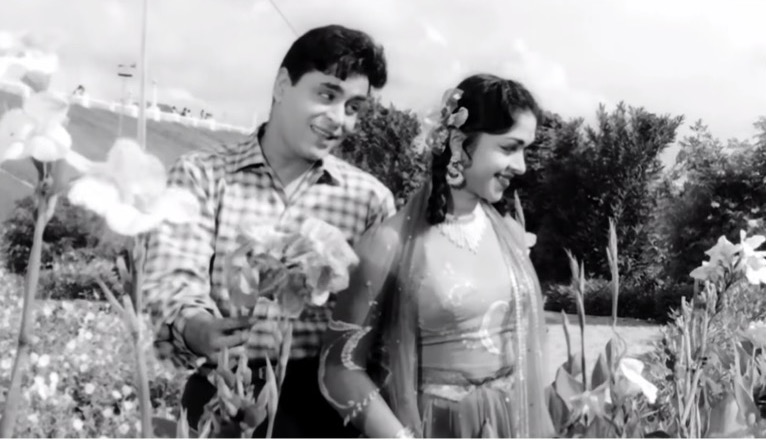
This incredibly apt Mohammed Rafi song was requested by mega-fan Ravi Chandran. Hope you and your special someone love it!
As for me, I wish a Happy Valentine’s Day to my sweet husband who still writes me love letters that would make Hasrat Jaipuri envious! Fortunately, knowing my style, he has entirely avoided mention of the whole “nazar” cliché…
– Mrs. 55

